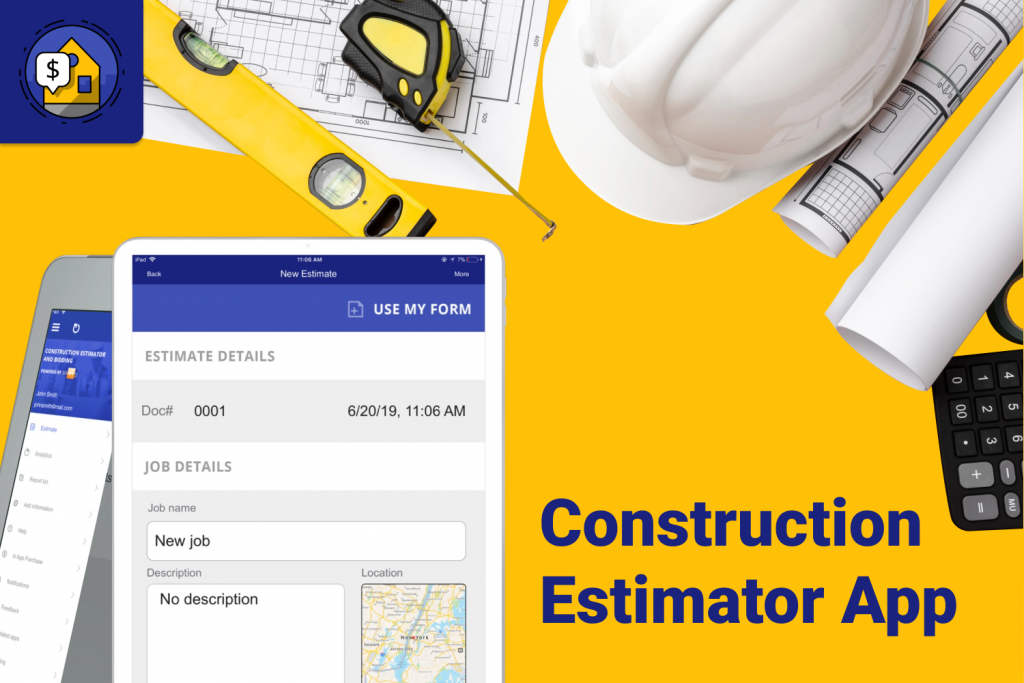In today’s fast-paced construction world, mobile apps have emerged as essential tools that bridge the gap between office routines and on-site operations. Gone are the days when paperwork—or even blueprints—had to be physically shuffled between workspaces. Now, construction teams can access real-time plans, updates, and communication directly from their smartphones or tablets, empowering them to make faster, more accurate decisions. These mobile solutions not only reduce delays and paperwork but also bolster safety, enhance collaboration, and deliver measurable cost savings—revolutionizing how projects are planned, executed, and managed. In this blog post, we will take a closer look to the benefits that mobile apps bring to the construction industry.

1. Enhanced Communication & Real-Time Collaboration
Mobile apps break down communication barriers between on-site workers, office staff, and other stakeholders. Features like instant messaging, push notifications, and document sharing streamline coordination and reduce delays. Apps ensure everyone stays on the same page, regardless of location.
2. Access to Real-Time Data & Improved Decision-Making
With mobile apps, construction professionals can access the latest drawings, resource availability, and site data instantly. This real-time access empowers them to make faster, more informed decisions, reducing costly downtime or errors.
3. Streamlined Reporting & Administrative Efficiency
Rather than relying on paper forms or manual spreadsheets, workers can use digital tools for daily inspections, reporting, and checklists. These apps assign mandatory fields, include GPS and timestamps, and allow immediate photo uploads—leading to better compliance, don’t need to worry about data loss or illegible forms.

4. Boosted Productivity & Reduced Administrative Overhead
Automating repetitive administrative tasks—like scheduling, time tracking, inventory logging, and invoicing—frees up workers to focus on core tasks. This improves site efficiency, accelerates workflows, and reduces human error in data entry.
5. Stronger Quality Control & Safety Compliance
Safety-focused mobile apps let crews perform digital checklists, report hazards instantly, attach photo evidence, and log incidents—all while meeting compliance mandates. This proactive approach helps mitigate risks and ensures faster responses to on-site issues.
6. Cost Savings & Resource Optimization
Minimizing paperwork, travel, and admin duplication reduces operational costs. Plus, improved tracking of materials, labor, and equipment helps prevent overruns and waste—saving time and budget.
7. Efficient Equipment & Asset Management
With built-in GPS, barcode/RFID scanning, and maintenance logs, mobile apps enable real-time tracking of tools, vehicles, and heavy equipment. This reduces theft, prevents unnecessary purchases, and supports proactive upkeep.

8. Data Insights & Continuous Improvement
Apps collect rich data—like productivity metrics, cost variances, safety trends—which can be analyzed to pinpoint inefficiencies, recurring issues, and opportunities for improvement on future projects.
9. Seamless Offline Capabilities
Many construction sites lack consistent connectivity. Mobile apps with offline mode enable data capture even when disconnected, syncing as soon as service is restored—ensuring no information is lost.
10. AR/VR & BIM Integration for Smarter Planning
Advanced mobile apps are beginning to integrate cutting-edge tools like Augmented Reality (AR), Virtual Reality (VR), and Building Information Modeling (BIM). These enable virtual site walkthroughs, precise on-site measurements, and early detection of spatial conflicts—transforming design and pre-construction coordination.
Mobile apps have swiftly emerged as transformative allies for construction companies, fundamentally reshaping how projects are managed on and off‑site. By enabling real‑time communication, enhancing data accuracy, and streamlining administrative tasks, these apps not only boost productivity and reduce costs—but also elevate safety standards and foster a culture of accountability. With centralized documentation, instant analytics, and seamless field‑office integration, firms are able to detect issues early, optimize resources efficiently, and make data‑driven decisions that keep projects on time and within budget.
While the implementation of such digital tools may come with challenges—like connectivity constraints, security concerns, and the need for workforce training—these are increasingly manageable through offline capabilities, encrypted platforms, and intuitive user experiences. For construction companies aiming to stay competitive in an evolving industry landscape, investing in mobile technology isn’t just smart—it’s essential. As tech advances with AI, AR, IoT, and more, apps will only become more sophisticated, empowering firms to build smarter, safer, and more profitably than ever before.
Embracing mobile apps today means transforming construction from a reactive process into a proactive powerhouse—paving the way for innovation, resilience, and success in every build.

 Login
Login

